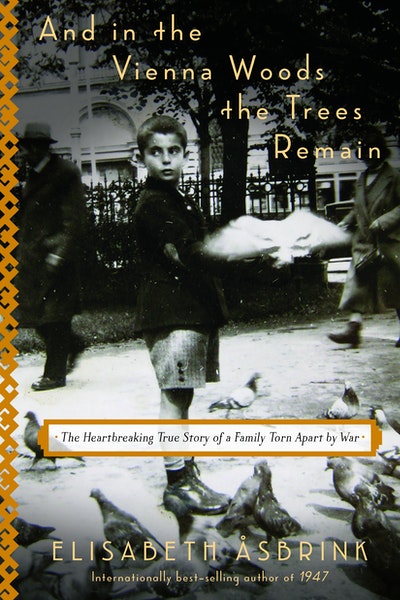- Published: 21 January 2020
- ISBN: 9781590519172
- Imprint: Other Press
- Format: Hardback
- Pages: 448
- RRP: $59.99
And in the Vienna Woods the Trees Remain
The Heartbreaking True Story of a Family Torn Apart by War
- Published: 21 January 2020
- ISBN: 9781590519172
- Imprint: Other Press
- Format: Hardback
- Pages: 448
- RRP: $59.99
Praise for 1947: Where Now Begins: “1947 is one of those books that makes you want to major in history. It is one of the best books, certainly the best nonfiction book, that I've read recently. I think the subtitle, Where Now Begins, really speaks to one of the things that makes this book so important: The echoes of 1947 are resonating very, very clearly today.” —Nancy Pearl on NPR’s Morning Edition “An extraordinary achievement.” —New York Times Book Review “A skillful and illuminating way of presenting, to wonderful effect, the cultural, political, and personal history of a year that changed the world.” —Kirkus Reviews “Åsbrink writes sentences that make one gasp in admiration…[1947] should be read for its poetry, its insights, and the interweaving of personal and political judgments.” —Sydney Morning Herald “Extraordinarily inventive and gripping, a uniquely personal account of a single, momentous year.” —Philippe Sands, author of East West Street “This is history as a series of eclectic snapshots of events and episodes and people, from the Nuremberg Trials to the partition of India, during a year in which the world tried to redefine its hopes and come to terms with its failures: and it makes for fascinating, disquieting, lively, and often surprising reading.” —Caroline Moorehead, author of Village of Secrets “Lucid and vivid…An outstanding work, history as it should be told.” —Salil Tripathi, Chair of the PEN International Writers in Prison Committee, and author of The Colonel Who Would Not Repent “Åsbrink deftly brings together the tangle, the mess, the aspirations, and the disappointments which characterized the period and which for her resonate personally through her family history.” —Rosemary Ashton, author of One Hot Summer: Dickens, Darwin, Disraeli, and the Great Stink of 1858

